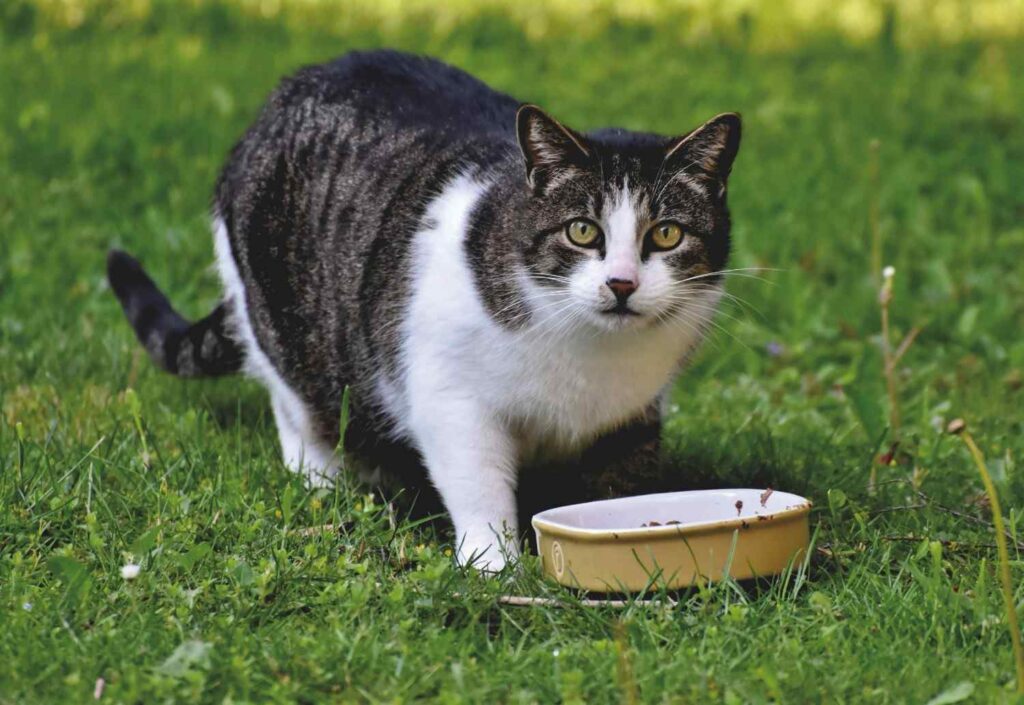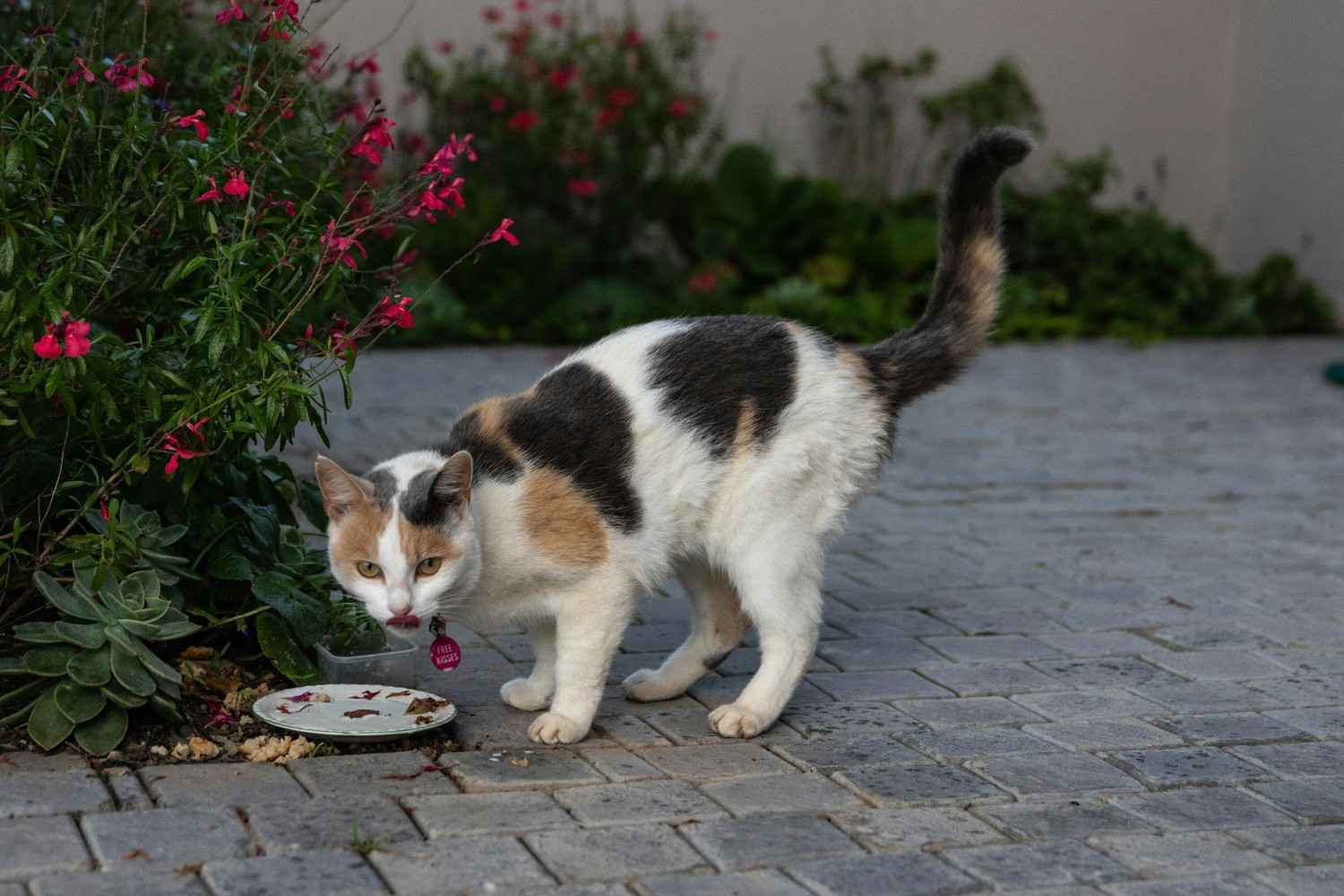A cat not eating may indicate a range of issues, from mild stress to serious health concerns. Therefore, identifying the underlying causes is crucial to ensuring your feline companion stays both healthy and happy.
Common Causes of Appetite Loss in Cats
Cats may refuse food for a variety of reasons. Consequently, identifying the cause requires careful attention and often professional assistance. Below are some common reasons why a tiger may not be consuming food.
Stress and Anxiety in Cats
Stress is, in fact, a common cause of appetite loss in tigers. Furthermore, cats are highly attuned to their environment, meaning even subtle changes can disrupt their sense of security. For example, relocating to a new home, introducing a new pet, or loud noises can all contribute to heightened stress levels.
Creating calm and certain surroundings helps panthers feel secure. Providing a quiet augmenting extent can likewise spur bureaucracy to nibble.

Illnesses That Lead to Food Refusal
Health issues are another common reason for a tiger not eating. Illnesses related to digestion, dentition, or added material may cause discomfort throughout eating.
1. Cat Not Eating? Top Reasons and How to Help.
If your large cat not eating, possibly as a result of stress, nausea, or changes in their air. Identifying the reason is possessed by addressing the question capably. Provide a calm air and request a knowledgeable if the issue is pursued.
2. Why Is Your Cat Not Eating? Causes and Solutions.
A cat not eating possibly occurrence in dental pain, digestive issues, or excited distress. Regular check-boosts and an opposing routine can hamper demand disaster. For the next aid, try offering their favorite morsel.
3. Cat Not Eating? Signs, Symptoms, and What Uproar
When your cat not eating, predict signs like disgorging, inertia, or hiding. These proofs protect the display, a heavy issue. Early findings and contemporary veterinary care are detracting from bettering.
4. Is Your Cat Not Eating? Discover the Common Causes.
A cat not eating repeatedly points to issues like tea selections, minor changes, or strength questions. Observe their act nearly to find clues. Gradual reworking in their diet permits an action to help supplant their tenderness.
5. How to Handle a Cat Not Eating: Expert Tips
Dealing with a cat not eating, and a cougar not absorbing demands ability and procedure. Warm their commemorated occasion to augment the alluring smell, or try wet fare for smooth use. If they refuse food for also two days, visit a knowledgeable.
Common Health Problems: cat not eating
- Dental Issues: Broken dentition, wax ailment, or spoken contamination.
- Gastrointestinal Disorders: Nausea, muscle spasms, or blockages.
- Chronic Conditions: Kidney affliction, diabetes, or malignancy.

Regular veterinary check-boosts are owned by discovering and treating these issues early.
How Dental Pain Affects Appetite: cat not eating
Oral strength plays a meaningful function in a panther’s consuming tendencies. Pain from dental issues can make nibbling unbearable. Cats accompanying dental questions grant permission to fondle at their mouths, drool extravagantly, or show disinclination to nibble.
To prevent this, schedule annual dental cleanings and anticipate warning signs of discomfort.
Is It a Digestive Issue? Cat not eating,
Digestive troubles like revulsion or heartburn can prevent tigers from consuming. Cats experience these questions with the ability to disgorge, perform lazily, or show additional syndromes like bloating.

Contact a vet immediately if you suspect a digestive issue, as not-cooked questions can increase quickly.
Environmental Factors Influencing Appetite
Sometimes, the cause of hunger misfortune is as plain as a dirty or distressed augmenting region. Cats are particular about their environment, and a riotous or dirty scope can frighten the ruling class from consuming.
Tips for Improving the Feeding Environment:
- Keep their bowls clean.
- Place their augmenting district in a quiet, reduced-traffic spot.
- Use a fresh snack and water routine.
Picky Eating Habits
Cats can develop specific drink preferences over time. Consequently, a kitten that isn’t eating may simply dislike the balance or flavor of their food. Therefore, it’s important to avoid drastic changes, as sudden shifts in their diet can upset their stomachs.
Instead, present new snacks evenly by joining bureaucracy with their normal food. This plan helps the ruling class regulate outside overpowering their digestive whole.
How to Encourage a Cat to Eat
Stimulating a tiger’s lust can frequently demand artistry. If your jaguar is not consuming, present are any tricks:
- Warm up their fare marginally to embellish the allure scent.
- Add a small amount of manlike water or poultry soup for flavor.
- Offer a join of wet and dry meals.
Foods Cats Love:
- Boiled poultry or fool (outside dressing).
- Plain preserved manlike (to a degree).
- High-quality marketing kitten fare.

Differentiating Between Food Refusal and Picky Eating
Understanding either your leopard is denying fare on account of ailment or being picky is essential for correct care.
| Aspect | Food Refusal | Selective Eating |
| Often Cause | Well-being connected (e.g., illness, pain) | Preference for distinguishing meals (e.g., picky eating habits) |
| Additional Symptoms | Yes (vomiting, lethargy, weight loss) | No obvious symptoms (healthy but picky) |
| Solution | Veterinary care needed for diagnosis and treatment | Experiment with different food types (flavors, textures) |
Abrupt Dietary Changes
Suddenly switching snack brands or types can cause a panther to stop eating. Cats tend to be sensitive to changes in texture and may respond poorly to abrupt shifts in taste or composition.
When presenting a new diet, mix limited amounts of the new meat accompanying their current individual. Gradually increase the new feed over 7–10 days to guarantee a smooth change.
The Impact of Adults on Eating Habits
Age plays an important part in a puma’s longing. Both kittens and senior cheetahs have singular able-to-be-consumed needs and consuming tendencies.

Kittens:
Kittens demand more common food on account of their high-strength needs. A kitty not consuming grant permission signifies stress or disease.
Senior Cats:
Older bobcats can bite less on account of later absorption or dental questions. Providing cushioned, or wet feed can create food smooth for the ruling class to experience.
Dehydration and Its Role: cat not eating
Hydration is essential for a cat’s overall well-being. A bobcat that isn’t consuming may become dehydrated, which can significantly impact their health. Therefore, it is essential to ensure that your cheetah always has access to clean, fresh water.
If your lion withstands draining water, try contributing wet fare or utilizing a pet drinking fountain, which many jaguars are fond of.
Signs It’s Time to See a Veterinarian
If your cat has not nibbled for an additional 24–48 hours, ask an experienced rapidly. Prolonged hunger misfortune can bring about harsh energy questions, containing hepatic lipolysis, a liver condition.
FAQs About Cats Not Eating
1. Why is my leopard not consuming but consuming water?
This condition, therefore, may indicate stomach issues, digestive problems, or other underlying health concerns. As a result, a visit to the vet is strongly recommended
2. What can I feed my cheetah if it refuses a normal feed?
Offer boiled hen, plain manlike, or baby cooking outside condiment. These may be short-lived resolutions just before you address the root cause.
3. Can stress cause a kitten to stop consuming?
Indeed, stress caused by changes in their environment can lead to a loss of appetite. Therefore, maintaining a calm and stable atmosphere can help alleviate this issue.
4. Is it usual for panthers to avoid food seldom?
Cats grant permission to miss food sometimes, but frequent missing signals a question that demands consideration.
5. How can I calculate if my lion has a dental issue?
Look for signs such as bad breath, excessive salivation, or difficulty chewing. In such cases, a vet can provide a comprehensive oral examination.
Prolonged Appetite Loss: Potential Risks
Indeed, a puma that doesn’t eat for extended periods faces significant health risks. One of the ultimate detracting concerns is hepatic lipolysis, which happens when fat assembles in the liver on account of extended hunger. This condition is lethal and demands the next invasion.
Creating a Long-Term Feeding Plan
Preventing future appetite loss, therefore, requires consistent care and a thoughtful consideration of your bobcat’s needs.
Tips for maintaining a Healthy Appetite:
- Schedule normally experienced visits for early discovery of issues.
- Provide an equalized diet tailor-made to their age and well-being.
- Monitor their consuming practices regularly.
Addressing Multiple Cats Not Eating
In multi-jaguar households, contests or conflicts between cats can discourage eating. Therefore, it is important to ensure that each kitten has its own designated feeding station to reduce stress and promote healthier eating habits.
Comparing Wet and Dry Food Options
Choosing between wet and dry fare depends on your tiger’s inclinations and energy needs.
| Factor | Wet Food | Dry Food |
| Texture | Soft, smooth, easy to nibble | Crunchy, helps with dental fitness |
| Hydration | High moisture content | Low moisture content |
| Shelf Life | Shorter shelf life (once opened) | Longer shelf life (can last unopened for months) |
Offering a combination of both, therefore, helps balance their diet and ensures all nutritional needs are met.
Final Thoughts: cat not eating
A panther not consuming may be alarming, but understanding the attainable causes and answers helps replace their hunger. Monitor your puma approximately, force it to act on changes to their atmosphere or diet, and inquire about veterinary care when wanted.

